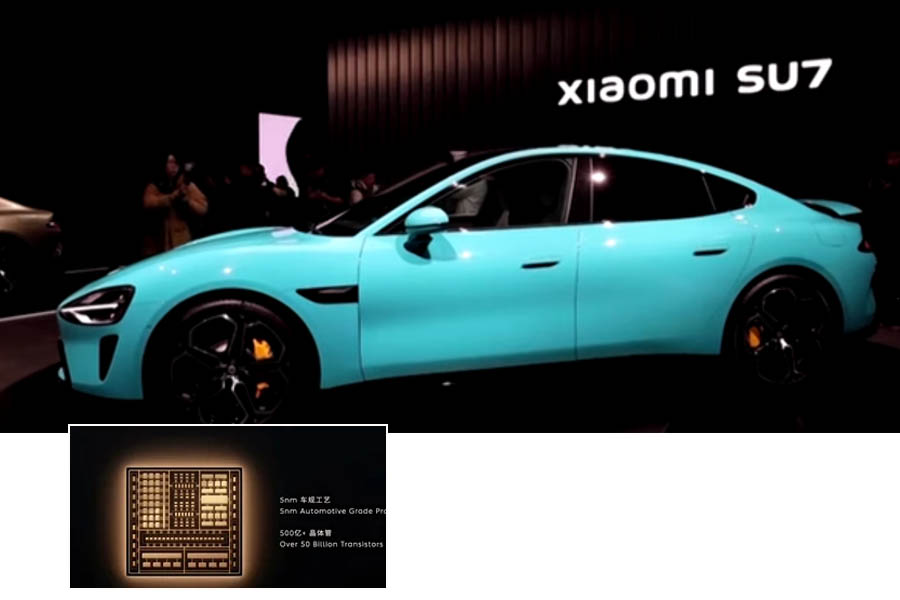
As 2023 comes to a close, Chinese electric vehicle (EV) manufacturer NIO and smartphone giant Xiaomi have made significant strides in the tech industry by introducing groundbreaking products that challenge the dominance of NVIDIA and Apple. These developments mark a crucial step in China's quest to establish its semiconductor technology and reduce dependence on imports.
NIO's Autonomous Driving Chip - Shenji NX9031 SoC:
On December 23, NIO unveiled its latest achievement, the Shenji NX9031 System-on-Chip (SoC), the company's first autonomous driving chip. The 5-nanometer chip boasts superior capabilities compared to the NVIDIA Drive Orin chips currently in use. Designed for NIO's new ET9 executive sedan, the NX9031 features an Arm 32-core CPU, a neural processing unit (NPU), a graphics core, and over 50 billion transistors. The chip can process lidar data and is set to work seamlessly with Nio's vehicle operating system, SkyOS.
NIO CEO William Li stated that the computing power of the NX9031 rivals four NVIDIA Drive Orin SoCs, emphasizing its potential for next-generation autonomous vehicles. While NVIDIA acknowledges the need for increased computing power in its Drive Thor, scheduled for production in 2025, NIO's chip already demonstrates remarkable capabilities.
Xiaomi's Electric Vehicle Entry - Xiaomi SU7:
Xiaomi, not content with its success in the smartphone market, entered the EV space on December 28 by unveiling its first electric vehicle, the Xiaomi SU7. This four-door electric sedan, designed by professionals with experience at BMW and Mercedes-Benz, is manufactured by Beijing Automotive Industry Corp (BAIC). Equipped with NVIDIA Drive Orin SoCs for assisted and autonomous driving and running on Xiaomi's proprietary operating system, the SU7 aims to compete with luxury car manufacturers such as Porsche and Tesla.
Xiaomi plans to invest $10 billion in its auto business over the next decade, signaling its commitment to becoming a major player in the global automotive industry.
Huawei's Autonomous Driving Achievements:
In the race to dominate the EV market, Huawei has also made significant strides. Despite facing sanctions, Huawei has developed its own automotive ICs and operating system. The Ascend chipset in its Mobile Data Center is capable of 352 TOPS, enabling Level 4 High Driving Automation. This achievement positions Huawei as a formidable competitor, showcasing its commitment to innovation in the electric vehicle sector.
Apple's Lagging Entry into the EV Market:
While tech giants like NIO, Xiaomi, and Huawei are making waves in the EV industry, Apple seems to be falling behind. Despite intermittent rumors of Apple's interest in the automotive sector, the company has yet to make any official announcements. The latest news from China highlights the urgency for Apple to catch up with its Chinese counterparts.
The recent developments in the Chinese electric vehicle market, spearheaded by NIO, Xiaomi, and Huawei, underscore the nation's commitment to technological innovation and self-reliance. As these companies challenge established players like NVIDIA and potential entrants like Apple, the global electric vehicle landscape is evolving rapidly. The race to develop advanced semiconductor technology and autonomous driving capabilities is heating up, with Chinese companies poised to play a leading role in shaping the future of the automotive industry.